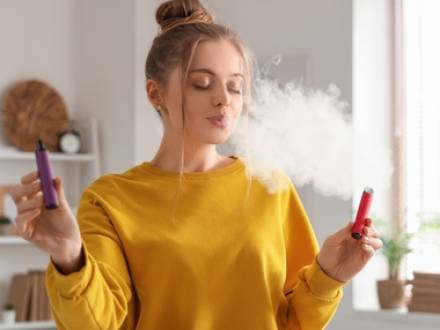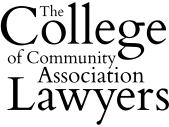 Polish,
Polish,  Ukrainian,
Ukrainian,  Russian,
Russian,  Hindi,
Hindi,  Spanish,
Spanish,  French and
French and  Greek.
Greek.
Can Condo Associations Regulate Cooking Odors, Cannabis, and Vaping?
 Condominium boards are usually well-versed in handling noise complaints from parties or excessively loud neighbors, but now associations are facing a new kind of nuisance dispute – smells. From cannabis smoke drifting through the vents, vaping in common areas, and strong cooking odors, issues of odors can raise awkward questions regarding how far an association can go in regulating private behavior inside a unit. Does the condominium board face liability if repeated complaints about smells are ignored?
Condominium boards are usually well-versed in handling noise complaints from parties or excessively loud neighbors, but now associations are facing a new kind of nuisance dispute – smells. From cannabis smoke drifting through the vents, vaping in common areas, and strong cooking odors, issues of odors can raise awkward questions regarding how far an association can go in regulating private behavior inside a unit. Does the condominium board face liability if repeated complaints about smells are ignored?
How can a condominium association balance residents’ individual owner rights and the right to privacy with the comfort of other owners? It is important to understand the condominium board’s authority under the Illinois Condominium Property Act (Ch. 765, Act 605, Sections 1 through 35) and how related case law can help navigate these challenges. An Arlington Heights, IL condominium association law attorney can help guide you through this tricky situation to ensure you follow the law and avoid claims of overreach or bias.
The Traditional View of "Nuisances" in Condos
Under condo bylaws, noise and odor complaints are treated as nuisances. The duty of the condominium board is to maintain common elements and protect the use and enjoyment of the condominiums for all residents. Standard enforcement tools for condo boards include warnings, fines, and amendments to the rules and bylaws. Odor complaints are unlikely to fit neatly under standard bylaws unless they have been updated to account for such things as:
- Cannabis smoke, which is legal under Illinois law
- Strong essential oils, incense, or hobby-related fumes
- Vaping, which is usually perceived as less of an annoyance than cannabis
- Cooking odors from strong spices, frying strong-smelling foods like cabbage, or cooking cultural foods.
Real-world scenarios involving the above could include:
- A resident (legally) regularly smokes cannabis inside his or her own unit. The smoke drifts through the vents and hallways, and the close neighbors complain to the condo association.
- A resident commonly cooks strong curry and fried foods that cause his or her neighbors to complain about the smell. The condo board had to investigate whether the odors rose to the level of a legal nuisance, while being careful to avoid discrimination against cultural cooking practices.
- Vaping in the condo gym and near the pool has become a regular occurrence for some residents. This leads to other residents complaining about the odor. Although vaping doesn’t produce "traditional" smoke like cannabis, the board may be forced to clarify the bylaws to prohibit vaping in common areas.
What Can Condominium Boards Do?
Condominium associations have the power to regulate the use of units to prevent nuisance, but they are walking a fine line when distinguishing between personal rights and community rights. Boards are within their rights to ban smoking and vaping in common areas, and, if permitted by bylaws, inside units.
If enforcement appears discriminatory – such as banning cultural cooking practices due to the smell – there are fair housing concerns. Yet, if there are multiple complaints, failure to act could expose the board to breaches of fiduciary duty or claims of negligence. Not all insurance policies cover nuisance-related claims, and repeated nuisance issues can lower property values, potentially triggering lawsuits from owners.
Condo boards should review and, when necessary, amend bylaws to cover vaping, cannabis, and odor nuisances, while creating clear, non-discriminatory enforcement policies. Every complaint and board response should be carefully documented, and mediation should be attempted before complaints escalate to legal action. If there are any potential practical fixes, such as improved ventilation, sealing units, or providing designated smoking areas, these fixes should be implemented.
Contact a Cook County, IL Condominium and Homeowner Association Law Attorney
Nuisance complaints are rarely a "one-size-fits-all" situation. Condo associations must carefully interpret bylaws, apply them consistently, and seek legal guidance for gray areas, which could include the risk of discrimination claims. An Arlington Heights, IL condo association lawyer from Dickler, Kahn, Slowikowski & Zavell, Ltd. can help ensure condo associations stay out of legal trouble. Our firm has more than 150 years of combined legal experience. To schedule your initial attorney meeting, call 847-593-5595.















